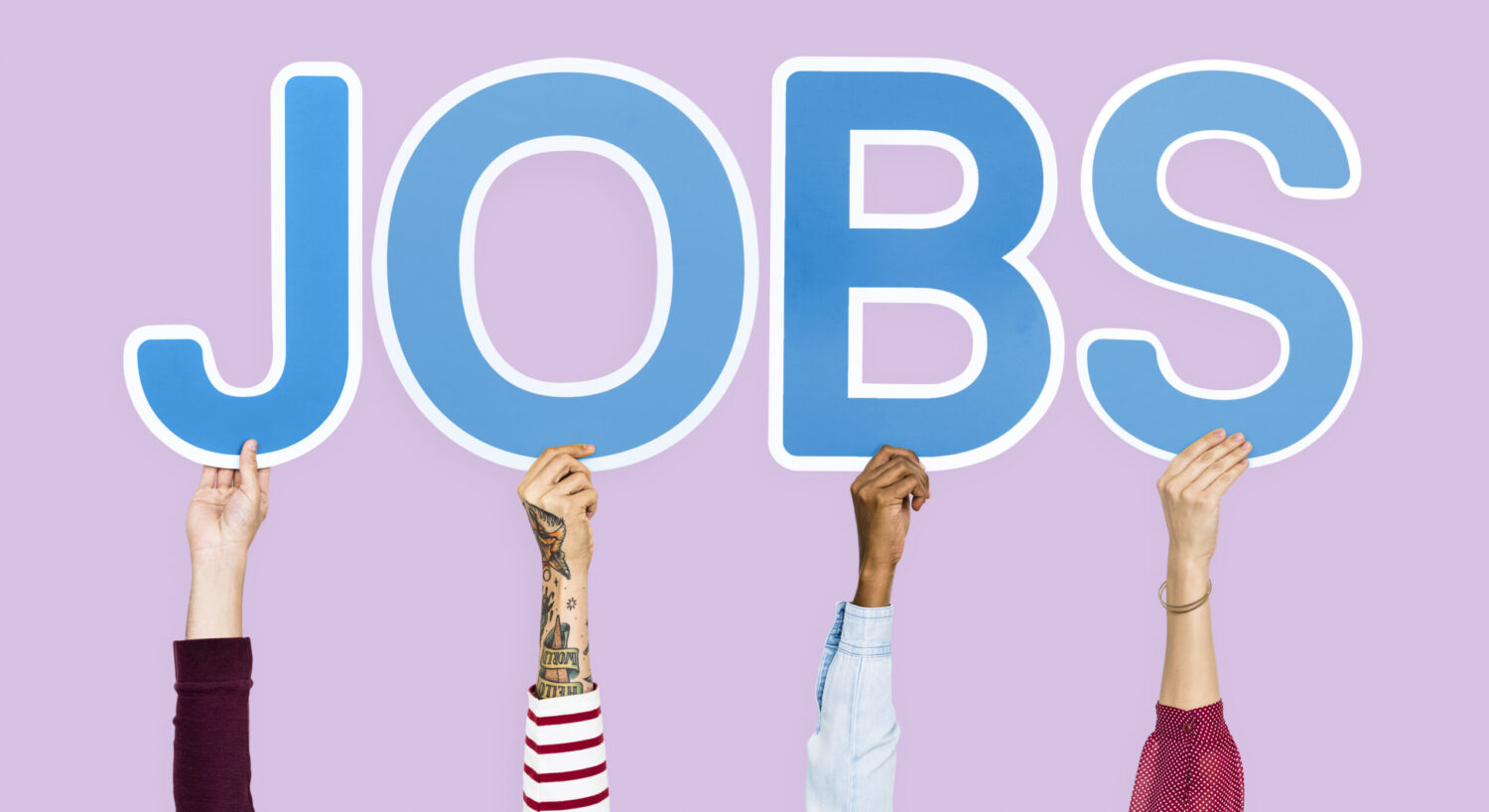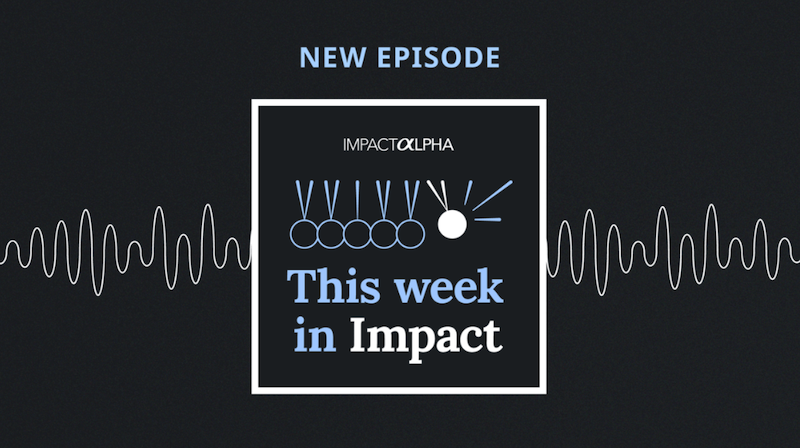The post-mortem on this election is far from over, but as the news of the past few weeks has unfolded, we are seeing signals about what mattered and what’s next. As long-time impact investors that launched a new democracy portfolio after 2016, it’s been a wild time to be an investor in this space.
In 2008, we began investing in farmer cooperatives and first-time impact fund managers to help launch the field of impact investing. Through creative use of risk and first-loss capital, and bets on high-potential experiments and emerging social impact talent, we helped leverage hundreds of millions of dollars for impact. Many of our early investments have become anchors in the impact investing ecosystem.
In early 2017 we launched Propel Democracy, a $5 million initiative to spark investment in innovative strategies for building progressive power and increasing engagement in historically underrepresented communities. Leveraging our prior experience, we provided philanthropic, political and investment capital to fund experimentation and risk-taking. We believed that deep investment in overlooked places combined with creativity and new energy propelled by the 2016 election would have the potential to lead a generational transformation in American democracy. We open-sourced our diligence and worked in close partnership with other funders, ultimately moving millions more in aligned funding.
Many of the bets we made early have yielded strong results and have significant implications for issues impact investors care about – a healthy planet, access to education, health care, jobs and a strong economy that works for the many, not just the few. Our experience operating across the impact investing and political spheres over the past four years confirms our hypothesis: to create lasting change, impact investors should think of political funding as a key component of a diversified portfolio of investing.
To build this portfolio, we scanned the democracy landscape and forecasted 5 trends to guide our investments. Here’s how they played out, so far:
- The swing voter would not be red to blue, but nonvoter to voter. For decades our country has been on a steady trajectory toward a growing percentage of Black, Latinx, and Asian American-Pacific Islander populations. But demographics isn’t destiny. Building a multi-racial, multi-generational coalition requires investment and authentic, long-term engagement. Organizations we have supported with political funding such as Color Of Change, which builds Black power; Care in Action, which organizes primarily women of color who are workers in the care economy; and Mijente, which organizes across Latinx communities, are increasingly connecting with their members around civic participation and working to hold elected officials accountable for real change. As Mijente’s Marisa Franco wrote in the New York Times this week: “When we knocked on doors in Latino neighborhoods, people told us over and over that they’d never been contacted before.”
The most powerful 2020 example of the newly engaged is the Movement for Black Lives, which has become the largest US movement in history with 26 million people participating in across 50 states, half of whom were engaging in political action for the first time. Organizing work by these groups and others in communities that had not been reached out to before paid off, with historic turnout among Black, Latinx, Indigenous, Asian Americans, and young people. If groups have access to ongoing resources to organize between and during election cycles, this engagement will pay dividends for democracy for years to come.
- Pockets of successful state-based organizing would continue to up-end our assumptions about the electoral map. Long-term, year-round local organizing has always been central to societal and political change, and the remarkable flip from red to blue in Arizona and Georgia is no different. Years of skilled organizing in communities of color laid the groundwork for these results in 2020. With increased resources, in part from new donor networks like Way to Win and Movement Voter Project, state-based groups were among the stars of this cycle – winning races up and down the ballot, building a pipeline of candidates for the future that reflect the communities they serve, and fighting for legislative wins that have real impact in people’s lives. And they did all this while working to support and connect with their communities in the midst of a global pandemic. The amazing leaders of these organizations are the Stacey Abrams’ of tomorrow — Tram Nguyen of New Virginia Majority, Tomas Robles and Alejandra Gomez with LUCHA in Arizona, Nse Ufot from New Georgia Project, and Andrea Mercado at New Florida Majority, among others.
- The tremendous political experimentation that emerged after 2016 would necessitate rapid, risk-tolerant investment. Propel moved quickly to invest in the surge of innovation in 2017, believing that early funding would allow for critical beta-testing of ideas and enable successful experiments to reach scale in time for 2020. Efforts like Swing Left, Indivisible, and Mobilize, as well as lesser-known innovations like The Movement Cooperative, were launched during this period. The Movement Cooperative, now a 70+ member cooperative of independent non-profit organizations, leveraged the co-op structure (more often seen in housing or food co-ops) to create shared infrastructure and collectively purchase technology tools and access to the privately-held data file of voters. This approach accelerated the data and technical capacity of key progressive organizations, ranging from MoveOn and NARAL to the Sunrise Movement and Color Of Change, and resulted in tens of millions of dollars in savings for these groups that could then be used to engage and mobilize members and voters.
These and other early-seeded innovations were essential to progress in 2020. Impact investors have the opportunity to replicate this outsized impact by deploying similar seed capital now for the advances of tomorrow, providing critical lead time for groups to experiment and build for 2024 and beyond. The innovation pipeline from our partners at New Media Ventures, which annually vets a slate of for-profit, political, and non-profit enterprises, has served as a valuable source of diverse, highly vetted source of new projects for us to consider.
- The fractured media landscape and unchecked misinformation on social media platforms would undermine our democracy. The decade-long shift away from mainstream media towards digital platforms with little to no accountability created environments where bad actors, both foreign and domestic, are able to quickly spread harmful disinformation. Campaigns and organizers had to build new capacity to play digital offense and defense with a strong narrative presence and sophisticated communications action plans.
To fortify these efforts, we helped build digital infrastructure through an equity investment in A/B Partners, a digital storytelling studio focused on elevating the voices of people of color, and political funding for ACRONYM, a digital media firm, that reach millions of voters across the country. In 2020, we helped A/B Partners launch Win Black/ Pa’lante, an anti-disinformation hub of 159 grassroots groups countering the active voter suppression efforts targeting Black and Latinx communities. Win Black/Pa’lante ultimately reached more than 26 million people in key states across the country.
With continued disinformation circulating at the highest levels, there is an ongoing need for compelling, accurate news and trusted information sources. Protecting and expanding our media and information channels requires vigilance and ongoing engagement from all of us who care about a functioning democracy.
- Smart, efficient aggregation to harness the new energy from donors and volunteers, would have outsized impact. Post-2016 there was a dramatic increase in the number of people seeking to get involved in electoral politics. This surge in energy created demand for more efficient mechanisms to aggregate and tactically direct capital and volunteers. Tools had been built for volunteer engagement at scale within individual electoral campaigns. But as often happens in politics, the technology and infrastructure disappear after Election Day.
To create more durable infrastructure, we made an equity investment in Mobilize, a platform that connects Democratic campaigns and progressive organizations with their supporters and helped facilitate 13 million actions this cycle. Unlike Facebook, Mobilize allows organizations to retain control of their data, a highly valuable asset for political groups. In addition to moving volunteers, there was also a need to move funding more efficiently. We provided early political funding to both Swing Left, which helped direct small dollar donations to campaigns quickly, and Way to Win, a progressive donor network that swiftly and strategically moved millions – $100 million this year – to state-based groups and is shifting the conversation about where political funding should be allocated.
Over these past four years we’ve all learned that democracy is NOT a spectator sport. It’s not enough for us as impact investors to fund individual companies, no matter how exciting or groundbreaking their approach or technology might be. We also have to think about the structures and systems in which companies operate. As impact investors with access and privileges, we have an important role to play in ensuring a healthy and functioning democracy, creating policies that protect people and the planet, and taking action to address systemic racism embedded in our country’s history.
This year so many of us organized, fundraised, and showed up in record numbers with an incredible new generation of voters, and the result was historic levels of engagement and a decisive Democractic win in the electoral college and popular vote. Yet we still have a long way to go, and none of us should take our foot off the gas for a second. This is a critical time to double down on funding and engagement and invest for the future. We are all stewards of this democracy. As Congressman John Lewis said, “Democracy is not a state. It is an act, and each generation must do its part to help build what we called the Beloved Community, a nation and world society at peace with itself.”
Sarah M. Williams is co-founder and CEO of Propel Capital, which invests in early-stage ventures and visionary leaders challenging the status quo and driving transformational change. After more than ten years of learning and partnership with over 100 entrepreneurs and change-makers, today Propel’s focus is on direct investment in early-stage impact-driven companies, building progressive power in the U.S., and improving economic outcomes and access to capital.












